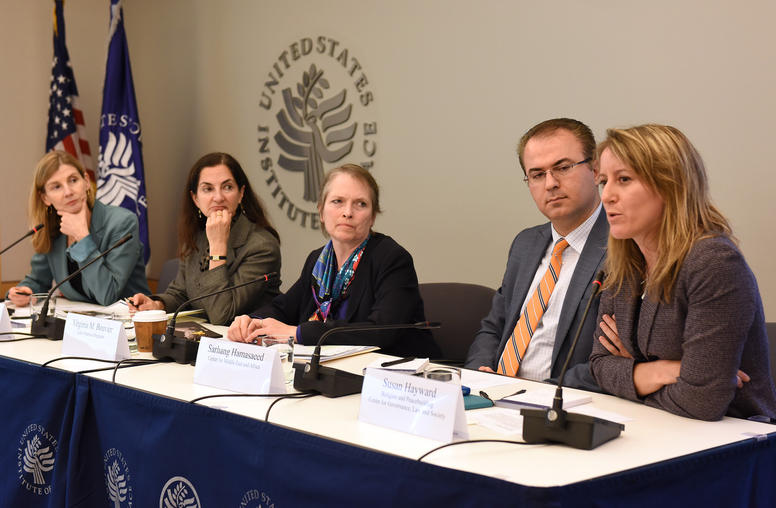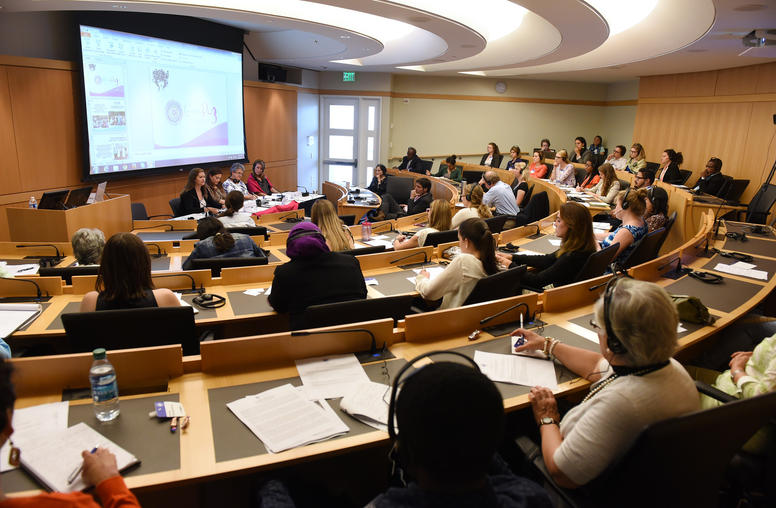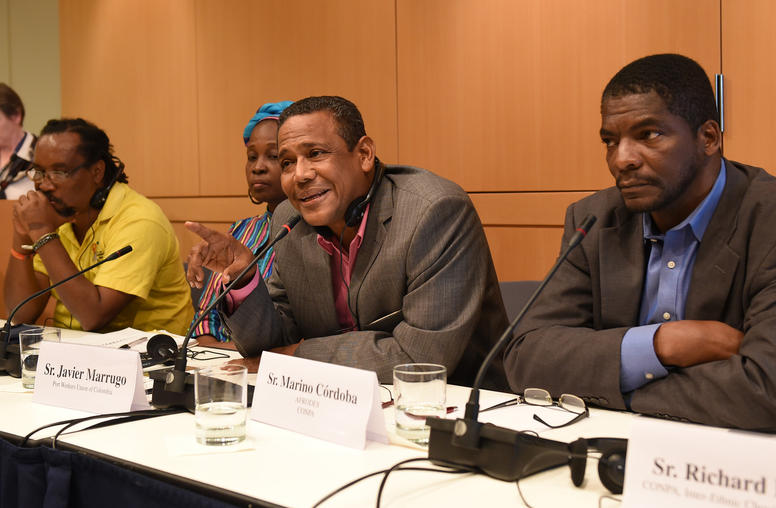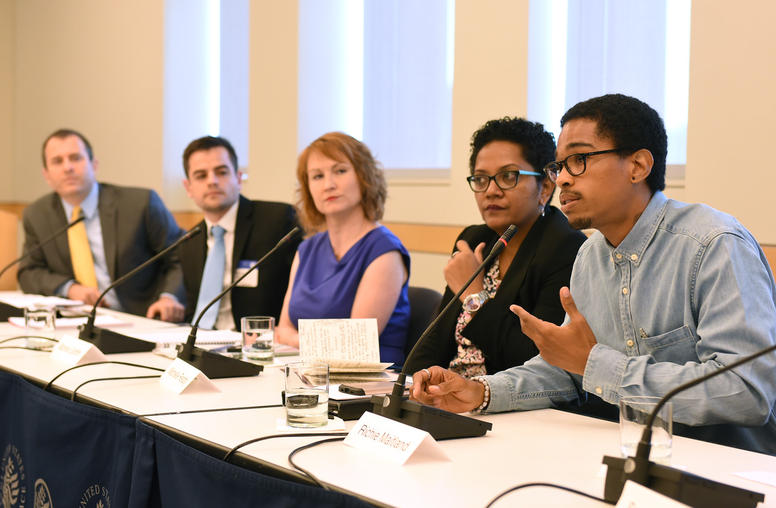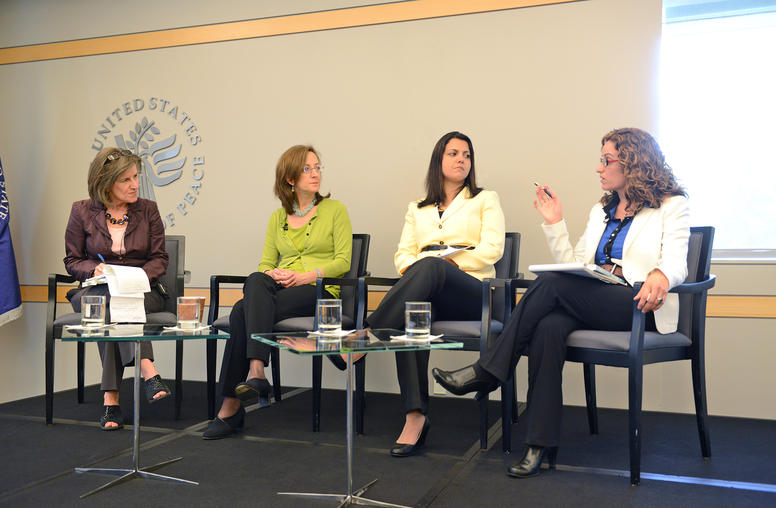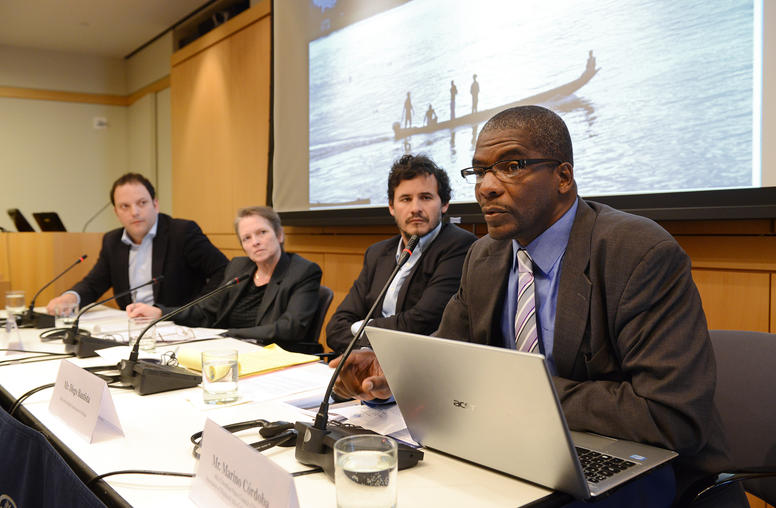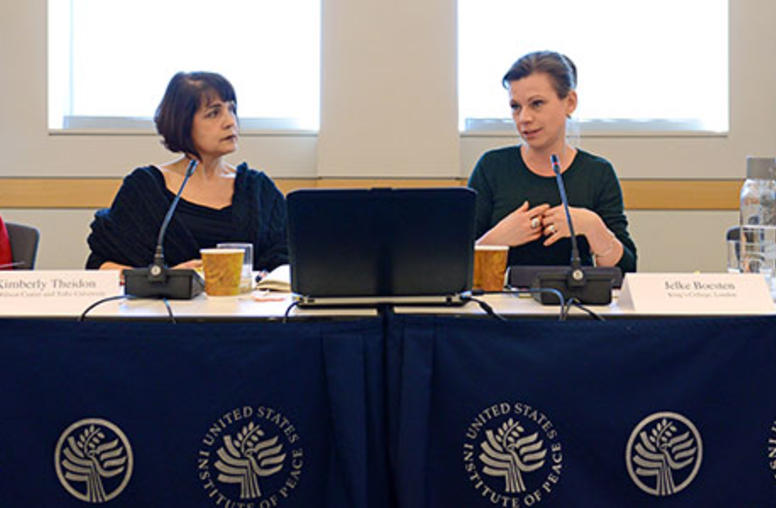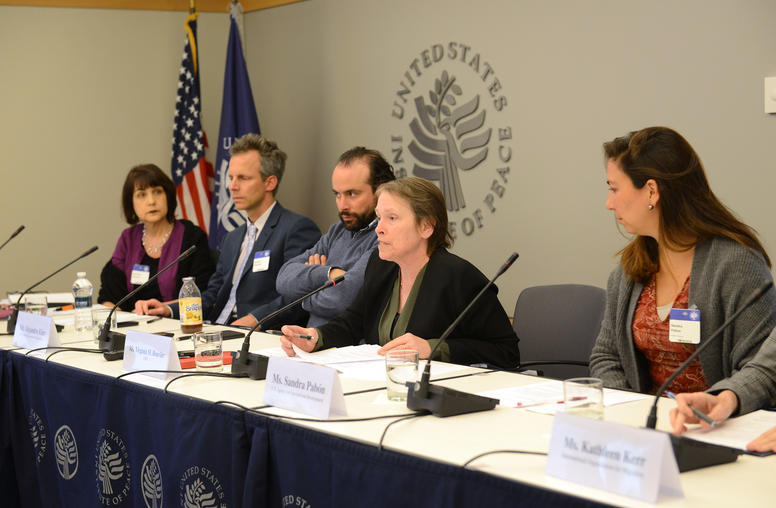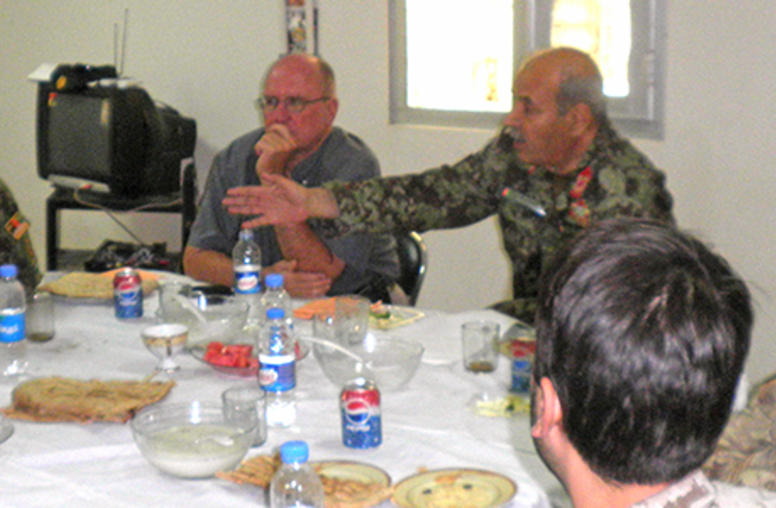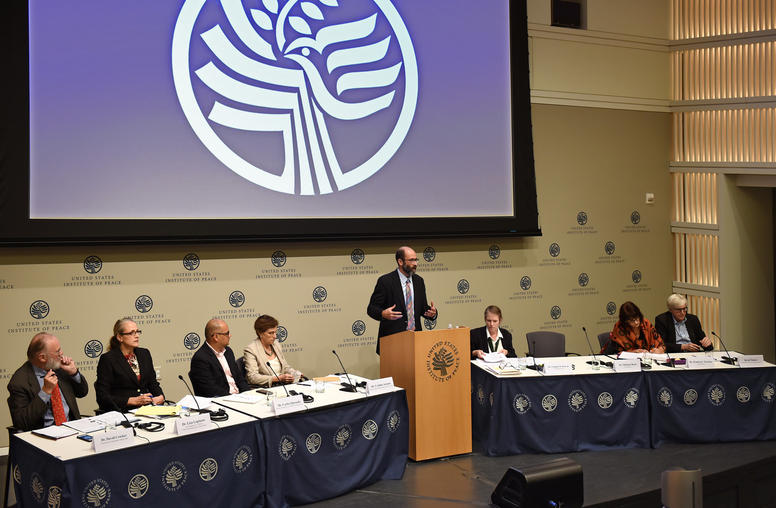
Colombia’s Peace Process and Transitional Justice
Colombia’s government and the FARC movement achieved their September 23 breakthrough in peace negotiations by setting down basic principles on the rights of victims to truth, justice, reparations and guarantees of non-repetition. USIP’s Colombia Peace Forum, on September 30, analyzed the role of historical memory in these transitional justice issues.
